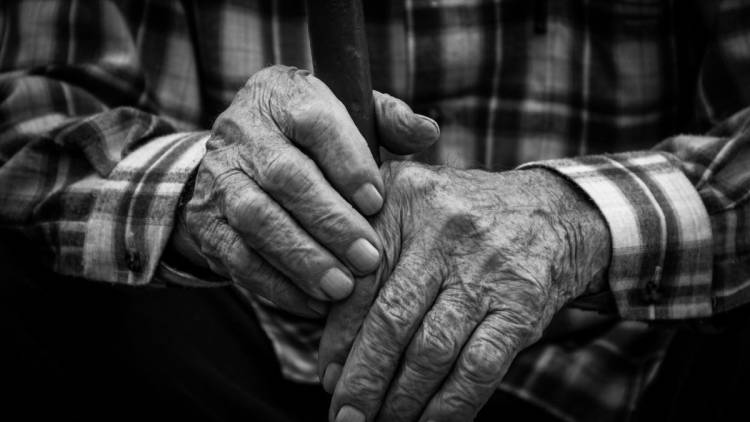The terms geriatrics and gerontology can easily get confused as they both involve caring for seniors. However, they serve different and individual functions.
Geriatrics involves quality care for seniors. Seniors have specific health needs that differ from those of younger adults. Geriatricians manage illnesses and disorders of the elderly and develop a health plan associated with those disorders.
Gerontology is the actual study of the aging process and how to apply that knowledge to individual seniors.
The study of geriatrics and its direct application to an aging population has resulted in improved health for seniors and an increase in life expectancy. Today, many people take it for granted that seniors live a “full” life instead of slowing down to any major degree. Instead of accepting old age, Gerontology has improved the lifestyle and well-being of many older adults.
Issues Associated with Old Age
The most common health issues associated with aging are:
- Chronic conditions such as heart problems, obesity, or diabetes. Many chronic issues can be helped by visiting a geriatrician at least once a year or a proper diagnosis and a lifestyle change.
- Cognitive issues such as Alzheimer’s and/or dementia can increase exponentially with age. Close to 50 million people worldwide have cognitive problems. There is no cure for dementia, but a geriatrician can diagnose issues and provide treatments and actions that will help delay the onset of cognitive problems.
- Research at the World Health Organization has determined that 15 percent of seniors over the age of 65 suffer from depression, and this disorder is all-too-often not treated. Encouraging a healthier and more positive lifestyle can help seniors socialize, become more active, and improve their mindset.
- Physical injury is a problem among seniors, who often suffer from balance and mobility issues sometimes associated with osteoporosis and osteoarthritis. Geriatricians can help prevent falls through education and suggestions on how to modify the home into a safer environment.
- Many seniors are sexually active but do not use condoms, creating a problem with HIV/AIDS. This is another lifestyle issue where education by a geriatrician is helpful.
- Malnutrition is a problem with seniors when they either forget to eat or lack the essential vitamins to remain healthy. Seniors can be especially vulnerable to malnutrition as they deal with increased recovery time from hospitalization and illness. Their doctor can suggest changes, even small ones, in their diet to raise their level of well-being.
- Sensory impairments are a common problem for seniors as their vision and hearing abilities diminish. With the help of a geriatrician, these issues are easily treatable.
- Substance abuse can be a problem for seniors. According to the National Institute on Alcohol Abuse and Alcoholism, 17 percent of seniors over 60 have a drug and/or alcohol problem. This can be exacerbated by the fact that some elderly often have behavioral symptoms, such as depression or dementia, that can mimic the signs of substance abuse.
That is why a geriatrician needs to pay attention during regular examinations and ask the right questions to refer the senior to a facility experienced in dealing with the elderly. The signs of drug abuse are memory loss, worsening sleeping habits, irritable behavior, depression, loss of a loved one, increased isolation, poor hygiene, and general apathy.
Gerontology 101
Gerontology involves the study of aging, including physical, social, psychological, and economic which then allows the geriatrician to treat the symptoms. Sigmund Freud was one of the first doctors to explore the subject in the 1800s, and Alois Alzheimer expounded on neurodegenerative disorders in 1906.
Research into aging has helped geriatricians broaden their knowledge about aging and has increased their ability to provide the best treatment available. This is becoming crucial; by 2050, seniors are expected to comprise 22 percent of the population. The study of Gerontology has helped create more senior living communities, hospices, and better nursing homes. All of these have improved the lives of seniors and the health treatment they receive.
The support of Gerontology is vital considering how quickly our population is aging while medical education has been inadequate to train in providing qualified health care for seniors who will need care well into their 80s, 90s, and their 100s.
There is also a need to create greater interest in the study of Gerontology which will include education for trained caregivers and the seniors themselves. Ninety percent of elderly receiving at-home care rely on their caregivers who need to become an important and informed part of a healthcare team.
Social Gerontology and Biogerontology
Social Gerontology is a subspecialty under Gerontology that deals with the social aspects of aging. Social gerontologists help seniors connect easier with others and lead more independent lives. They can also help with age discrimination in hiring practices, senior abuse, and/or neglect in nursing homes and/or assisted living facilities. Social Gerontology includes providing assistance with dementia and other aging disabilities.
When necessary, Social Gerontologists help with paperwork such as insurance and other financial forms and help seniors locate needed resources in their community.
Biogerontology is a subfield of gerontology that focuses on biology, such as the cells and organs, and their effect on aging and deterioration. The hope is that as we learn more about how the body ages, the more we can do to extend life.
This is a relatively new science and has emphasized diet and antioxidants. Thus far, scientists can see the effects of aging on organs, memory, bones, etc., but much more research is needed to learn about what triggers the aging process within the body. The goal of gerontologists is to delay or eradicate cognitive and physical degeneration.
Little is known about how to shield the body against aging, and it may take decades before biogerontologists can implement new research, especially in the realm of stem cells and how they can increase human longevity. Our bodies rely on stem cells to renew old cells, but as we age, the number of stem cells decreases.
Current research involves injecting fresh stem cells into bone marrow, and it is possible that fresh stem cells into the brain may help the effects of dementia. Much research is currently being done on animals.
What is a Gerontologist?
A gerontologist studies the various effects of aging, such as physical, psychological, cognitive, and emotional. People should not confuse a gerontologist with a geriatrician, who focuses on the medical aspect of aging.
With the baby boomer generation aging quickly, the need for increased knowledge about disorders affecting seniors 65 years and older has become important. The medical community is no longer sitting back and assuming the aging process cannot be controlled.
A gerontologist studies the basic changes that happen to the body during this time, as well as how public policies and education can be geared toward improving the quality of life of seniors, as in the following:
- Management of casework
- Grant writing
- Education regarding aging
- Advocacy for seniors via government agencies
- Cognitive health counsel
- Management of nursing homes, hospices, and assisted living facilities
- Occupational therapy
- Housing for seniors
- Age discrimination
- Home-based caregiver training and education
One major difference between a geriatrician and a gerontologist is that the geriatrician will work with patients, while the gerontologist works on policy and advocacy rather than direct contact with patients..
Schools that Teach Gerontology
According to U.S. News & World, the following colleges have educational programs leading to a degree in Gerontology:
- University of Southern California
- Case Western Reserve University
- Miami University
- University of South Florida
- Quinnipiac University
- San Diego University
- University of Mississippi
- University of Massachusetts
- Bowling Green State University
- University of Nebraska Omaha
What Gerontology Social Workers Do
The functions and job requirements of a Gerontology Social Worker can be broad and wide ranged. They address the challenges of aging and advocating for independence and autonomy for seniors by helping them receive the assistance they need, such as food and counseling.
Said social workers require a firm knowledge about the issues faced by seniors and caregivers and what resources are available to ensure their rights. These resources should cover elder abuse, maintaining a suitable quality of life, and health care planning for seniors. The educational requirements for a gerontology social worker usually include a Bachelor’s degree.
Geriatrics 101
Geriatrics is medical care that focuses on senior health issues. Patients usually have a set of problems with which a geriatrician is familiar and can manage while preventing the development of certain disorders.
Senior patients can face different health concerns than younger patients. Geriatrics is concerned with the unique challenges facing seniors who are undergoing physical and cognitive changes. These changes can include a decrease in muscle mass, cardiac disease, cancer, and dementia, among just a few.
As the body turns frailer, seniors have difficulty with balance that can lead to falling and serious injuries. Seniors also suffer from loss of hearing and eyesight more than the rest of the population. Social problems for seniors can include loss of loved ones and isolation.
Another issue that makes Geriatrics unique is that many patients deal with a multitude of disorders at the same time, complicating accurate diagnosis and medication. Medications prescribed for several disorders can lead to adverse reactions, and cognitive impairment can make it difficult for the senior to discuss this with his or her geriatrician.
What is a Geriatrician?
A geriatrician is the primary health care provider for seniors. Their training is identical to any other doctor, with additional training in eldercare. Such patients can have complex issues that require special training and knowledge.
Much of eldercare involves the following issues:
- Arthritis
- Alzheimer’s
- Balance Issues
- Cancer
- Cardiac issues
- Dementia
- Diabetes
- Depression
- Increased Frailty
- Incontinence
- Insomnia
- Osteoporosis
A good geriatrician should also pay attention to the senior’s quality of life – is he or she eating and exercising properly? Is the senior isolated and depressed?
The questions that a geriatrician asks can help identify mobility issues (does the senior fall frequently?), medication management, and cognitive issues. These issues should be integrated into the totality of the senior’s health care management.
What Age is a Geriatric Patient?
The answer has to be a vague one. It’s like asking how old is old? Many people define geriatric by certain milestones, such as retirement or becoming a grandparent. Generally, the ages of 65 to 75 qualify as geriatric, but individual realities may differ. There are 60-year-olds running marathons while there are frail 50-year-olds.
Perhaps the geriatric age can best be described by the adage, “You’re as old as you feel.” Research has found the importance of diet, exercise, and general health history on how to best age. People who have lived a careless lifestyle may be physically and mentally old at an early age.
Geriatrics cannot be defined by a single number. It is more of a state of mind.
Schools that Teach Geriatrics
All geriatricians need to go to a standard medical school, then specialize in geriatrics. There are no specific degree programs for geriatric physicians, but the need for geriatric nursing care is strong. Nursing students can find geriatric nursing programs at the following universities:
- Armstrong State University
- Boston College
- Brandman University
- Capella University
- Caribbean University Bayamon
- Case Western Reserve University
- College of Staten Island CUNY
- Concordia University-Wisconsin
- CUNY Hunter College
- CUNY Lehman College
- Emory University
- George Washington University
- Indiana Wesleyan University
- Kaplan University-most campuses
- Keuka College
- LIU Brooklyn
- Loyola University
- Marian University
- New York University
- North Park University
- Oakland University
- Seattle University
- Seton Hall University
- Southern University and A&M College
- Stony Brook University
- The College of Saint Scholastica
- The University of Tennessee-Health Science Center Memphis
- University of Akron Main Campus
- University of California-Irvine
- University of Massachusetts-Boston
- University of Massachusetts-Lowell
- University of Michigan-Ann Arbor
- Wilmington University
- Wright State University-Main Campus
- Armstrong State University
Gerontology vs Geriatrics Summary
As people live longer, the need for quality geriatric care is taking on greater relevance. Geriatric care is a joint endeavor between physicians, nurses, and general caregivers. Anyone can get ill, but there are physical and cognitive disorders that are specifically age-related.
Much of the geriatrician and caregiver’s role is a preventive one, as many aging-related problems can be decreased or alleviated with the proper treatment. As the generation of seniors continues to increase, such specialized care will increase in importance.







